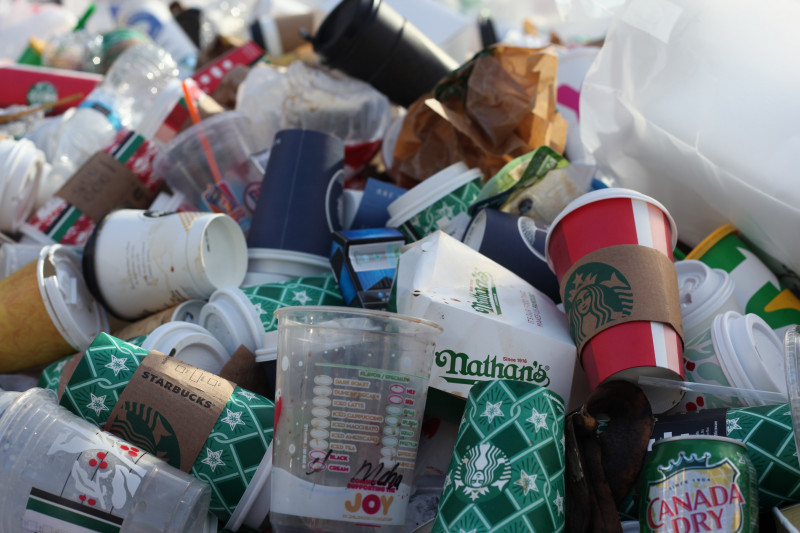
By Fodhla O'Connell-Grennell
The new Waste Action Plan is long overdue in Ireland. Only this month, young people in Portugal have filed legal action in the European Court of Human Rights (ECHR) accusing 33 countries, including Ireland, of violating their right to life by not doing their fair share to tackle the climate crisis. With the introduction of this new plan, Ireland will try and pursue efforts to lessen our environmental impact through more sustainable waste management.
However, one major area in which this plan has been targeted by the media is the eradication of ‘two for one meals’ and cost added to ‘cheap’ clothing. The plan has been accused of being unaffordable for the public, however, Philip Nugent cleared up a few of these misconceptions about the plan during his talk at the EPA’s National Waste Event 2020. He outlined that two for one meals contribute largely to food wastage and that to eradicate the ‘buy one, get one free’ model on perishable food, people would in turn save more money. He also assured that talks with supermarkets about discounting food instead would take place to ensure food is still affordable for families.
The biggest discouragement when it comes to buying sustainable options is that they are usually expensive. Organic fruits and vegetables are overpriced as opposed to standard fruit and vegetables in plastic packaging. Surely, it should not be as costly to take care of the planet? Unfortunately, within our societal structure, money makes the world go ‘round. Sobering data from the EPA showed that in 2018 plastics replaced organics as our predominant waste category. We need to act against this and that is why a strong plan from our government is welcomed to tackle our waste. By doing this, we will be closer to achieving out waste management goals.
As outlined previously in the Sustainable PR’s guide to becoming a waste-free household, turning waste free might be the simplest and most affordable route to take. The ‘circular economy’, as described in the government’s plan, is not always fully understood by the public. A circular economy will ensure that any product which is used can be repurposed, recycled and reused rather than wasted. This will allow us to stop creating more products and to use what we have. We need to use what we own while making conscious choices when buying things that we don’t own. The Waste Action Plan’s goal is to have a circular economy where our carbon impact is reduced and protects our natural resources, environment and health.
In many households, it can take an extra ten minutes of your day to organise your waste correctly. Look at packaging and see what you can recycle. Prioritise using you brown and green bins and only use the black bin where necessary. Try focus on buying loose food or food with the least amount of packaging. This can be achieved through shopping more local.
It may be a good time now to contact your local TD, to voice how you are going to incorporate this Waste Action Plan into your own lifestyle and to see what they can do in the community to help you. Many supermarkets still have not implemented a program whereby bringing your own reusable packaging merits a reduced price on certain foods, such as, fruit and vegetables. This is one example of where your local TD can take initiative to implement what is best for the community. These little steps now will help us all become a wasteless society and it will make it a lot easier to reach the goal of halving our food waste by 2030.